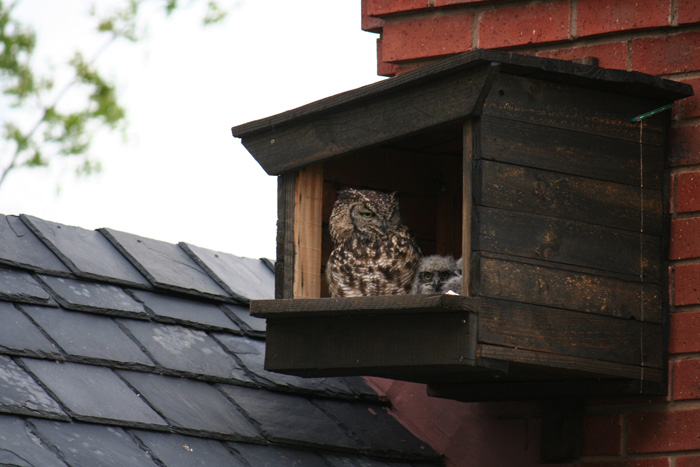Owls have captivated the human imagination for centuries, and few animals have so many different and contradictory beliefs about them. Owls have been both feared and venerated, despised and admired, considered wise and foolish, and associated with medicine and witchcraft. Having an owl box near your home may help you understand them better. Written by: Craig Glatthaar

In the mythology of ancient Greece, owls were honoured. Athene, the goddess of wisdom, adopted the little owl (Athene noctua) as her favourite feathered creature. However, in Roman mythology, the deaths of Julius Caesar and Commodus Aurelius were supposedly predicted by an owl. In English folklore, owl eggs cooked until they turned to ash were used as a potion to improve one’s eyesight. The Apache believed that dreaming of an owl signified approaching death, and in many African tribal beliefs, the presence of an owl on the roof means a death in the family is imminent. These days’ owls are rather revered, not for their symbolism, but for the very real reason that they keep rodent populations in check and they’re just amazingly well-adapted animals.
Despite all the myths and legends that surround these “wise” creatures, the reality of attracting owls to your garden is a wonderful way to marvel at these incredible hunters of the dark. Building an owl box is a great way to encourage them to your garden. Many owls use an artificial nest box – such as African wood owls, scops owls and pearl-spotted owlets. Barn owls and spotted eagle owls have learnt to live in close proximity to humans.
One of South Africa’s most common owl species is the spotted eagle-owl (Bubo africanus). They require a specific type of design for their owl box that is quite different from many of the other owls, but luckily, rather simple to build.

Spotted eagle owls are often hiding and resting during the day in rocky ledges or amongst the thick foliage of tall trees. For this reason, you will want to locate your box away from the hustle and bustle of your home. One doesn’t want to have to dodge a protective mother every time one goes in and out of your home. During the day, the owls will be relatively sedentary. However, nighttime is an altogether different story, where their acute vision, sensitive ears (within a large facial disk) and delicately designed quiet flying feathers turn them into the perfect nighttime assassins. They target all manner of prey, from insects to bats and even nightjars. One primary prey species is rodents, and here, attracting an owl to your home can serve a positive purpose… as opposed to being the bearer of all things evil.

Spotted eagle owls will mate for life, and they usually lay around two to three white eggs at intervals of between one to four days. The female incubates the eggs, while the male provides the food. Chicks hatch blind and begin to open their distinct yellow eyes after seven days. The young start leaving the nest and exploring at about four to six weeks and are normally flying by seven or eight weeks. The parents continue to care for the young for a further five or six weeks after they fledge. Their life cycles remind us of the small part we play on the planet, and it’s a humbling experience to watch an owl family going through the trials and tribulations of life – a wonderful reason to build your own owl box!
To comment on this story: Login (or sign up) to our app here - it's a troll-free safe place 🙂.![]()






